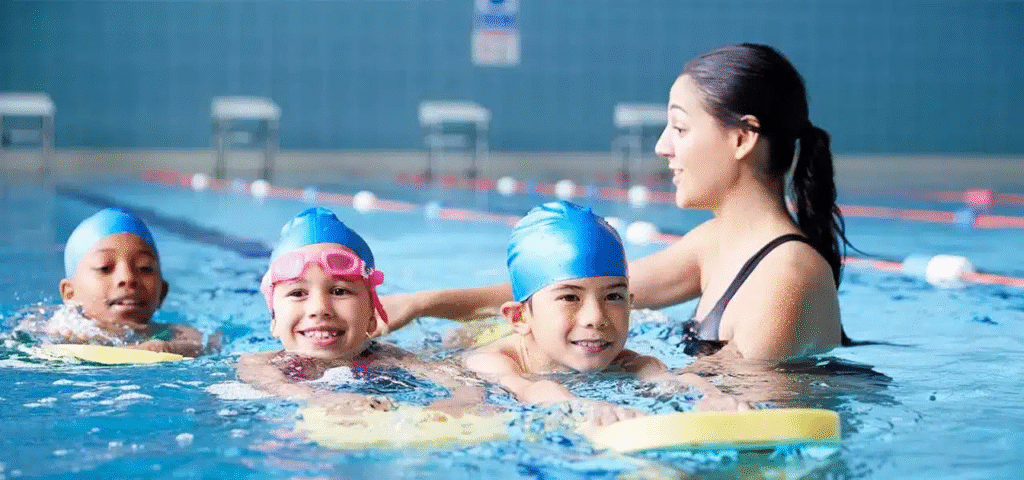
Swimming is not just a fun and refreshing activity for 游泳課程 children—it is a vital life skill that plays a significant role in their overall development and safety. Enrolling kids in swim classes at an early age provides numerous benefits that go beyond learning to float or swim laps. These classes build confidence, improve physical health, teach water safety, and foster social interaction. With increasing numbers of accidental drownings each year, swim education is more important than ever. Parents looking to give their children a strong foundation in physical activity and safety should seriously consider the many advantages offered by structured swimming programs.
First and foremost, swim classes help children develop essential life-saving skills that can protect them in and around water. According to safety organizations, drowning is one of the leading causes of death in young children, particularly those under the age of five. Early swim education can dramatically reduce this risk. Through professional instruction, children learn how to float, tread water, and swim to the edge of a pool, equipping them with the basic survival techniques necessary in emergencies. These classes also teach kids to respect water rather than fear it, helping them understand the importance of caution while enjoying aquatic environments.
In addition to safety, swimming offers significant physical benefits for growing children. It enhances cardiovascular fitness, strengthens muscles, improves coordination, and increases flexibility. Unlike many sports that may strain young joints, swimming is low-impact and gentle on the body, making it suitable for children of all fitness levels. Swim classes are typically designed to be fun and engaging, incorporating games and challenges that promote movement without the monotony of repetition. As a full-body workout, swimming contributes to healthy growth and supports the development of endurance and stamina in children, fostering lifelong habits of physical activity.
Beyond the physical, swim classes also support mental and emotional development. Learning a new skill like swimming instills a sense of achievement and builds confidence. As children progress through swim levels, they learn to set goals and celebrate their accomplishments, reinforcing a positive self-image. Overcoming initial fears of the water also encourages resilience and courage. Moreover, the structured environment of swim classes helps kids develop discipline and focus. Regular attendance, following instructions, and engaging in practice routines teach responsibility and build character in a supportive and encouraging setting.
Social interaction is another valuable component of swim classes. Children learn to work together, wait their turn, and cheer each other on in group lessons. These interactions promote communication and cooperation while fostering friendships and camaraderie. The group setting also creates a sense of belonging, as kids find encouragement and motivation by observing their peers. For shy or introverted children, swim classes can be a gateway to improving social skills and breaking out of their shells in a playful and dynamic environment.
Finally, swim classes provide a valuable bonding opportunity for families. Many programs encourage parent participation, especially for younger age groups. These sessions allow parents to actively engage in their child’s learning experience, strengthening trust and deepening their connection. Even for older children, parents who support and observe swim lessons can share in the joy of milestones and accomplishments. Involvement in swim education also gives parents peace of mind, knowing their child is gaining the skills to be safer around water while developing into a well-rounded individual.
In conclusion, kid swim classes are much more than recreational activities—they are essential programs that promote physical health, emotional growth, water safety, and social development. From building confidence to preventing drowning, the advantages of swim instruction are numerous and long-lasting. Parents are encouraged to start early and choose certified swim programs that cater to their child’s age and skill level. With consistent practice and encouragement, children not only learn to swim but also grow into confident, healthy, and capable individuals ready to enjoy a lifetime of safe aquatic fun.